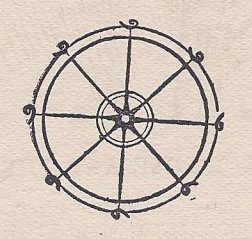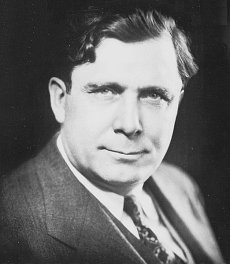
nullibiety
n. the state of being nowhere

nullibiety
n. the state of being nowhere
The following story, told of Franklin’s mode of treating the animal, called in those days ‘lounger,’ is worth putting into practice occasionally, even in this age and generation:
One fine morning, when Franklin was busy preparing his newspaper for the press, a lounger stepped into the store, and spent an hour or more looking over the books, &c., and finally, taking one in his hand, asked the shop-boy the price.
‘One dollar,’ was the answer.
‘One dollar,’ said the lounger, ‘can’t you take less than that?’
‘No, indeed, one dollar is the price.’
Another hour had nearly passed, when the lounger asked, ‘Is Mr. Franklin at home?’
‘Yes, he is in the printing office.’
‘I want to see him,’ said the lounger.
The shop-boy immediately informed Mr. Franklin that a gentleman was in the store wanting to see him. Franklin was soon behind the counter, when the lounger, with book in hand, addressed him thus: ‘Mr. Franklin, what is the lowest you can take for this book?’
‘One dollar and a quarter,’ was the ready answer.
‘One dollar and a quarter? Why, your young man asked only a dollar.’
‘True,’ said Franklin, ‘and I could have better afforded to have taken a dollar then, than to have been taken out of the office.’
The lounger seemed surprised, and wishing to end the parley of his own making, said, ‘Come, Mr. Franklin, tell me what is the lowest you can take for it.’
‘One dollar and a half.’
‘One dollar and a half? Why, you offered it yourself for a dollar and a quarter.’
‘Yes,’ said Franklin, ‘and I had better have taken that price then, than a dollar and a half now.’
The lounger paid down the price, and went about his business–if he had any–and Franklin returned into the printing office.
— Arthur’s Home Magazine, January 1854

Thomas Edison offered this burlesque on perpetual motion. “There will always be a nine opposed to a six,” explains Sam Loyd, “and as nine weighs more than six, it will make the wheel revolve rapidly, as well as your head when you understand it thoroughly.”

From Clark Kinnaird’s Encyclopedia of Puzzles and Pastimes, 1946:
Though a great American, Wendell Willkie nevertheless lacked one of the four necessary requirements for becoming President of the United States. One must be at least 35, a native-born American, and a resident of the U.S.A. for at least 14 years. Name the fourth requirement which Willkie also lacked?
A contronym is a word with two contrary meanings, such as cleave or sanction (more here).
The word contronym itself has no double meaning. Is it a contronym?
“Not until I came along!” writes Charles Melton in Word Ways. “I declare that it is a contronym for the simple reason that it isn’t! It is both a self-opposite and not a self-opposite. QED.”
A merchant who traded in cocoa
Much admired that strange style called rococo.
You’ll be happy to learn
That the name of his firm
Is to be The Rococo Cocoa Co.
— Leigh Mercer

Of the Second Impressionist Exhibition of 1876, critic Albert Wolff wrote in Le Figaro: “Five or six lunatics, one of them a woman — a collection of unfortunates tainted by the folly of ambition — have met here to exhibit their works. … What a terrifying spectacle is this of human vanity stretched to the verge of dementia. Someone should tell M. Pissarro forcibly that trees are never violet, that the sky is never the colour of fresh butter, that nowhere on earth are things to be seen as he paints them. …”
When J.L. Gérôme was conducting President Loubet around the exhibitions at the Exposition Universelle of 1900, he stopped him at the door of the Impressionist room, saying, “Arrêtez, Monsieur le Président, c’est ici le déshonneur de la France!”
In early April 1922, a little girl, Pauline Picard, disappeared from her parents’ farm in Brittany. Searches turned up no clues, and eventually it was thought that she had been carried off by gypsies.
Then word came from Cherbourg that a girl had been found who matched Pauline’s description. The parents hurried to claim her, but they found that the girl did not seem to know them, and she remained silent when addressed in Breton. They returned with her to their village, where the neighbors recognized her, and the attending policeman was satisfied she was Pauline Picard.
Then, in May, a farmer crossing a local field discovered the mutilated body of a young girl. She could not be identified, but her parents recognized Pauline’s clothes.
The New York Times reported: “Although it would seem almost incredible that the parents should make a mistake, the Picards are now uncertain whether the child they have been nursing for more than a month is really their own, and the police are faced by a three-fold task — to discover the murderer, identify the murdered child, and, if she is proved to be Pauline Picard, discover the identity of the little girl from Cherbourg.”
I can’t find any record that they succeeded.
“No person was ever honored for what he received. Honor has been the reward for what he gave.” — Calvin Coolidge
A logic exercise by Lewis Carroll. What conclusion is implied by these premises?